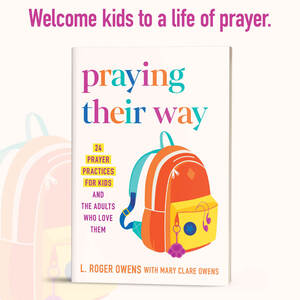
New Book Release: Praying Their Way
Help kids develop an authentic relationship with God. Children have a natural curiosity about God and Read More
After Dad died I felt numb, even as family and friends gathered close to offer comfort. Days were filled with details and planning for the funeral and memorial service. After the busyness of final arrangements was done and comforters returned home, grief rushed in to fill my heart and mind. Some days of sadness were expected, like the first holidays and my next birthday that came without Dad being with us to join the celebrations. His absence cast a shadow on each day. Some days, grief took me by surprise. Listening to a song on the radio that told of a father’s love for his daughter left me sobbing at the tender words, overcome by grief again. When I saw a man who shared similar coloring and build as my dad, waves of sadness crashed over me. Tears slipped down my cheeks as sorrow hit me anew.
I knew the Bible says that we don’t grieve as those without hope (I Thess. 4:13), but in my mind I kept seeing Dad suffering in his hospital bed or in death. I couldn’t shake the dark images; grief overwhelmed me. In the shadows of my pain, God gently taught me how to mindfully redirect my thoughts. Now when sad thoughts and images fill my mind, I stop and refocus on visualizing my dad in heaven. There he has no pain, no cancer, and no sorrow. I imagine him as a younger man who is healthy, vibrant, and joyous in his eternal home.
I hold on to the promise that I will see Dad again—I think he will meet me at heaven’s gate. In the meantime, I know he is rejoicing with family and friends and meeting the saints we’ve read about in scripture. Most of all, Dad can enter into the presence of Lord to worship and praise. So when dark clouds of sadness try to creep in, I focus my mind on Dad in heaven—healthy and happy for eternity. That’s how I think of him now, and that restores my joy.
